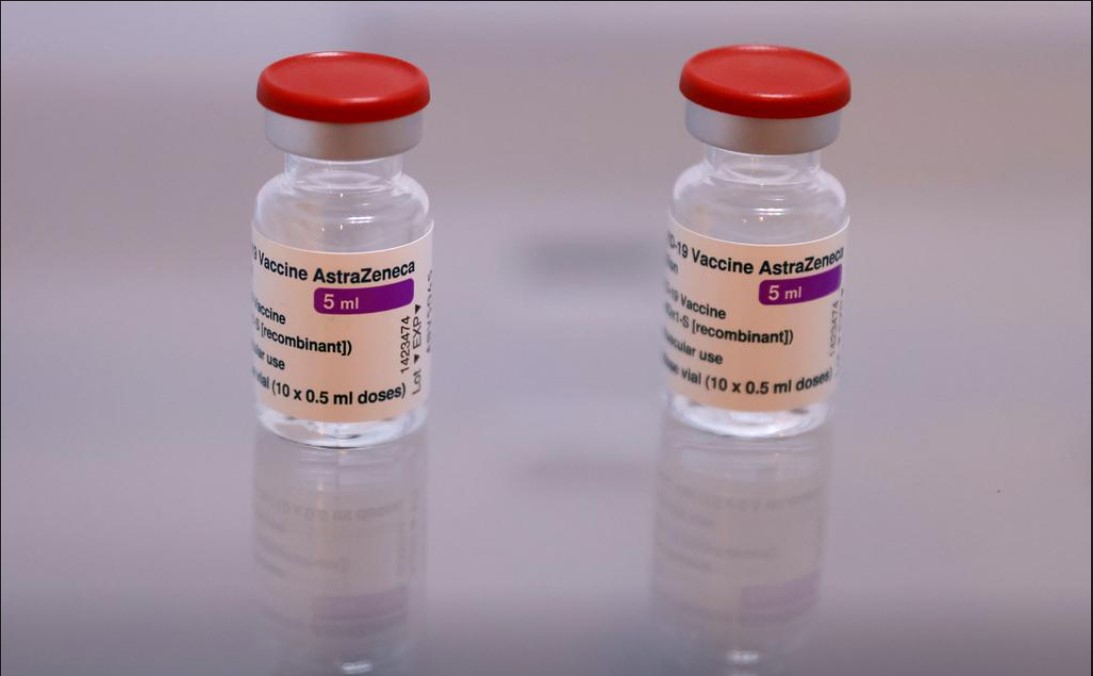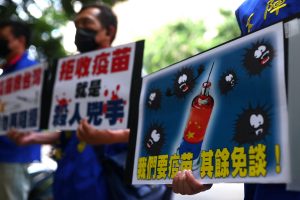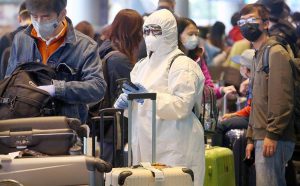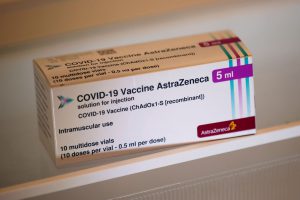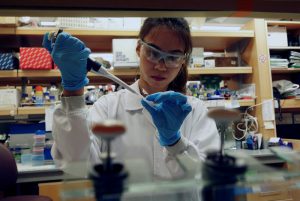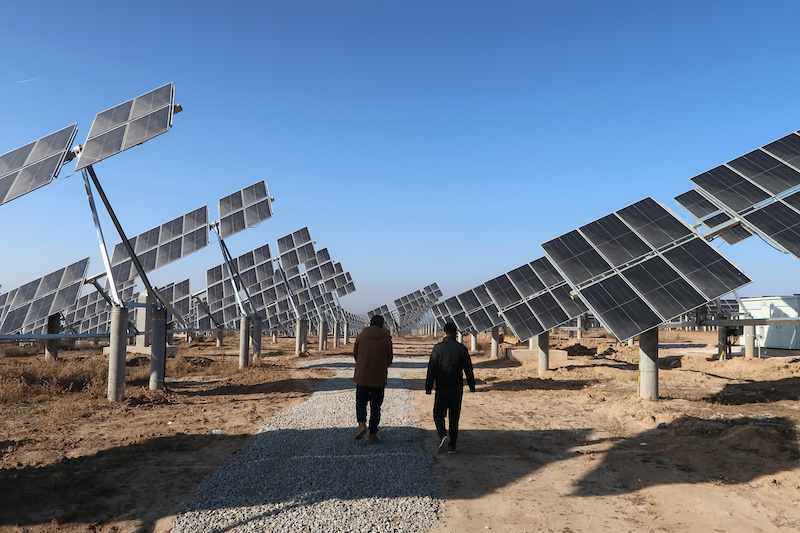(ATF) Six weeks back when problems at AstraZeneca’s European production plant jeopardised Canadian Prime Minister Justin Trudeau’s plan to vaccinate “every Canadian who wants one by September,” his government had to kick off a global hunt to boost Canada’s lagging vaccination drive.
With no local vaccine production, and only about 3.6% of Canadians given at least one dose, Canada trails many developed nations in inoculations as the world races toward vaccinating enough people to halt the pandemic.
Last week, following a push by Ottawa to get a version of Astra Zeneca’s Covid vaccine made at an Indian facility approved, Canada’s drug regulator Health Canada cleared a version of the shot made by the Serum Institute of India (SII). SII filed the application with a Canadian partner, Verity Pharmaceuticals.
As 500,000 doses made by SII, the world’s largest vaccine producer, are set to arrive in Canada this week, and another 2 million doses are due to be sent in mid-May – enough to vaccinate 2.7% of its population – India has emerged as a surprise leader of the global vaccine diplomacy race.
India, the unmatched vaccine manufacturing powerhouse, is donating millions of doses of the AstraZeneca-Oxford jabs produced onshore to countries rich and poor, friendly and estranged, bolstering a lot more than its reputation as a supplier of cheap and accessible vaccine.
READ MORE: Covid vaccines: Dr Ngozi’s first big test as new WTO head
New Delhi is also using the coronavirus vaccine – one of the world’s most in-demand commodities and a new currency for international diplomacy – to strengthen ties and expand its influence globally.
The SII shipment comes weeks after Indian Prime Minister Narendra Modi assured his Canadian counterpart Justin Trudeau that India would do its best to supply Canada with vaccines, a sign of improving diplomatic relations that soured after Trudeau expressed concern over India’s farmer protests late last year.
According to the Ministry of External Affairs, India has – up till yesterday – donated 34 million doses of the vaccine and sold another 41 doses to 38 countries. That excludes Canada, but includes poorer neighbours such as Bangladesh, Myanmar, Nepal, Angola and Nigeria, as well as rich ones like the UAE and Saudi Arabia.
The Reuters, quoting a UK government spokesperson, also reported today that UK has ordered 100 million doses of AstraZeneca’s vaccine, of which 10 million doses will come from the SII.
Global good
“This [move to supply vaccines] is an extension of India’s reputation as the pharmacy of the world. India has been supplying affordable medicines to large swathes of the developing and developed world for years,” Professor Biswajit Dhar, an expert at the Centre for Economic Studies and Planning School of Social Sciences at Jawaharlal Nehru University in New Delhi, told Asia Times Financial.
“[But now] in a world where access to affordable medicine and particularly Covid vaccines have become a real problem, India is stepping in and underscoring the fact that vaccines and medicines are actually global public goods.”
Prof Dhar said India had stepped up to supply vaccines to whoever has sought help at a time when the US and other rich nations are caught up in ‘vaccine nationalism’ to safeguard the interest of their citizens and scooping up the world’s initial Covid vaccine supplies.
The World Health Organization has recently voiced concern about growing protectionism and nationalism during the coronavirus crisis and insists that trade barriers must be lowered to help the world recover.
The World Trade Organisation is also pushing for a waiver on intellectual property rights to help poor countries gain faster access to Covid vaccines.
“While most of the world is facing supply constraints, India with its largest vaccine producing facility is trying to prove that vaccines and medicines are global public goods,” Dhar said.
‘Pharmacy of the world’
According to the government, India is the largest provider of generic medicines globally, occupying a 20% share in global supply by volume. The country also supplies 62% of global demand for vaccines and ranks third for production by volume and 14th by value.
India has the largest number of US-FDA compliant pharmaceutical plants outside of the United States.
Before Covid, India made critical interventions during the HIV/AIDS epidemic by supplying affordable anti-retroviral medicines to African nations and some in Southeast Asia such as Thailand, where big American pharmaceutical producers were demanding excessively high prices.
After the Global Fund to Fight AIDS, Tuberculosis and Malaria took shape as a multi-stakeholder initiative to reduce the burden of these diseases, India’s generic pharmaceutical industry emerged as one of the largest suppliers.
Last year in June, SII entered into a licensing agreement with AstraZeneca to supply one billion doses of the Oxford University Covid vaccine to middle- and-low-income countries, including India.
SII currently supplies its vaccine, Covishield, to the Indian government. Prior to this, another Indian biopharmaceutical company, Bharat Biotech International Limited, together with the Indian Council of Medical Research, began developing their own vaccine, ‘Covaxin’, which is still undergoing phase-3 trials.
Vaccine hesitancy
The main concern, however, is that the pace of vaccination in India itself has been slow. So far, only 14 million doses have been given and experts say unless the drive is scaled up, India is likely to miss its target of vaccinating 250 million people by July.
India has confirmed more than 11 million cases and over 158,000 deaths since the pandemic began.
“Like elsewhere in the world, India is also experiencing the phenomenon called ‘vaccine hesitancy’. Many do not come back after the first jab preferring to wait and watch, which is why we see the pace of vaccinations slowing down,” an industry source, who requested anonymity, told ATF.
However, according to a survey conducted in February by the community social media platform LocalCircles, vaccine hesitancy in India is dropping significantly with more starting to take the jab. LocalCircles said 64% of those surveyed are willing to let their eligible family members get the vaccine, either at a government or private hospitals. “This means that in the aftermath of 45 days since the vaccination began, the percentage of willing takers goes up from 38% to 64%, and only 36% citizens are now hesitant to take it,” the report said.
Much of India has reported a sharp fall in cases recently, with daily infections for the country dropping to less than 20,000 from a peak of over 90,000 in September. But a handful of states have recently reported a sharp uptick in the number of cases.




